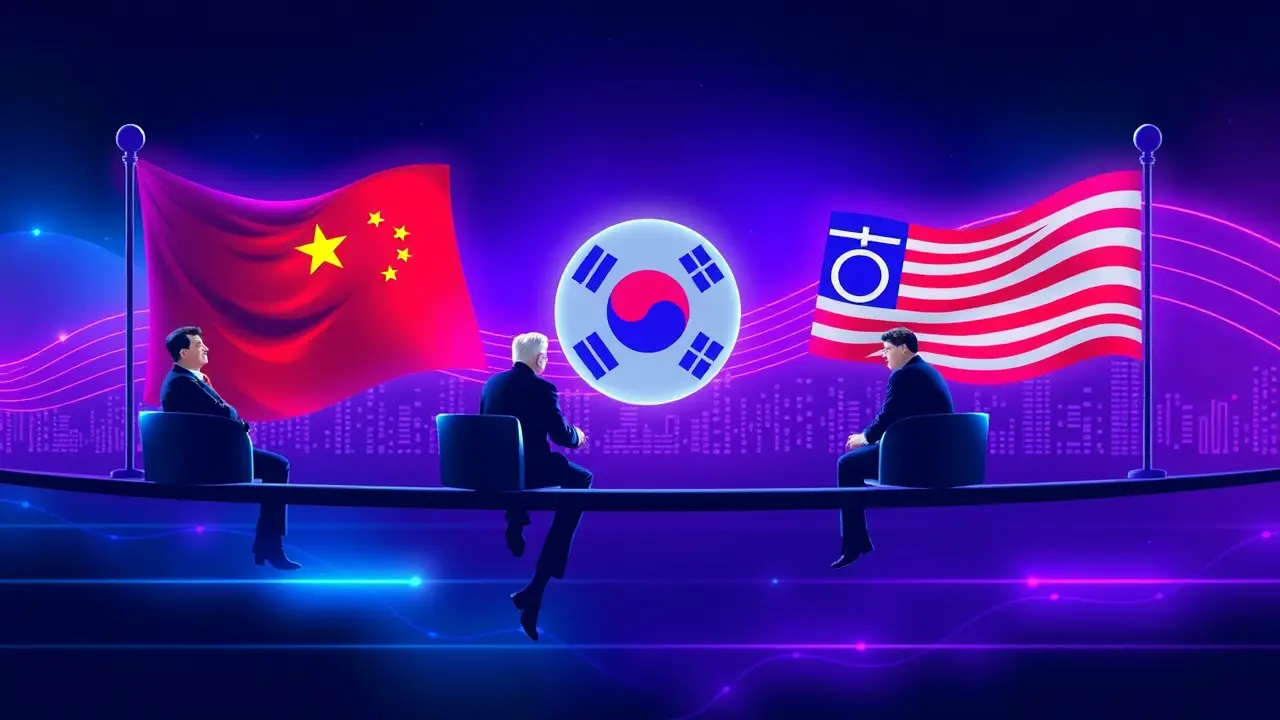
PoliticsdiplomacyBilateral Relations
South Korea's Fragile Diplomatic Balancing Act at APEC
RO
Robert Hayes
10 hours ago7 min read
The delicate diplomatic choreography performed by South Korea at the recent APEC summit represents a classic case study in the perils of middle-power statecraft, a high-wire act reminiscent of the strategic dilemmas faced by nations throughout history caught between competing hegemons. President Lee Jae-myung’s administration, in its concerted bid to reboot strained ties with the economic behemoth China while simultaneously deepening its ironclad military alliance with the United States, has embarked on a path fraught with geopolitical friction, a maneuver that last week’s high-stakes meetings in San Francisco served to illuminate with stark clarity.While the optics of President Lee’s separate, carefully orchestrated sit-downs with his counterparts Xi Jinping and Donald Trump were hailed in Seoul as significant diplomatic victories, the underlying structural tensions cannot be so easily photographed or dismissed. Analysts with long memories point to the steep price nations often pay for attempting to hedge between two superpowers whose strategic interests are fundamentally misaligned; one need only recall the precarious position of Austria-Hungary in the lead-up to the Great War or the non-aligned movement's struggles during the Cold War to find historical parallels for Seoul’s contemporary conundrum.The core of the challenge lies in the irreconcilable nature of its commitments: its security is irrevocably tethered to Washington through the Mutual Defense Treaty and the ongoing deployment of U. S.Terminal High Altitude Area Defense (THAAD) systems, a move that Beijing continues to view as a direct threat to its own strategic calculus and has previously punished Seoul for with devastating economic coercion. Conversely, South Korea’s economic vitality is deeply enmeshed with Chinese supply chains and consumer markets, creating a vulnerability that Beijing has demonstrated it is not afraid to exploit for political leverage.This fragile balancing act is further complicated by the volatile personalities involved; the mercurial nature of a second-term Donald Trump, with his transactional view of alliances and public musings on burden-sharing, introduces an element of unpredictability that contrasts sharply with Xi Jinping’s more calculated, long-term strategic patience. The warning from seasoned diplomats in the region is unambiguous: this is not a sustainable long-term strategy.The renewed pressure that analysts warn of is not a matter of if, but when, and from which direction it will manifest—be it through renewed trade barriers, heightened military provocations from North Korea tacitly endorsed by Beijing, or forceful demands from Washington for a more unequivocal alignment. The APEC summit did not create this dilemma, but it brilliantly staged its latest act, showcasing a South Korea walking a diplomatic tightrope without a safety net, its every move scrutinized by two powerful audiences waiting for the slightest misstep.
#South Korea
#US-China relations
#APEC summit
#diplomacy
#balancing act
#featured
Stay Informed. Act Smarter.
Get weekly highlights, major headlines, and expert insights — then put your knowledge to work in our live prediction markets.
Related News
© 2025 Outpoll Service LTD. All rights reserved.













